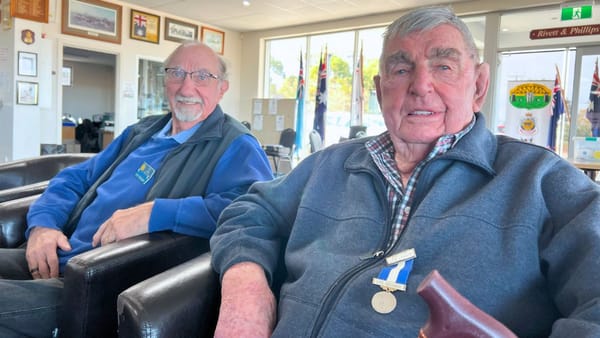Housing crisis is headed for boiling point in Murray Bridge
There are already many more renters than vacant properties, and with the population growing fast, locals say governments must intervene.

This story has been made free to read under Murray Bridge News’ editorial policy on advocacy. Please consider supporting our work by subscribing.

Every week the posts appear on Murray Bridge Community Board, a Facebook group.
“I am looking for a room or flat to rent as I have got a job offer in Murray Bridge...”
“Looking for a minimum two-bedroom house to rent, needing ASAP as currently living in a family’s lounge room...”
“Still desperately seeking a rental, we keep getting knocked back and we are in a very desperate situation with three children...”
This is what a housing crisis sounds like.
The Murraylands is in the grip of such a crisis, and it may get worse before it gets better.
Already there are dozens of would-be renters for every vacant property, and in just two recent months, 24 local families needed emergency relief to avoid becoming homeless.
Yet by the end of next year, up to 500 more families will need to move into the region as jobs open up at Thomas Foods International’s new meat works.
The good news?
Local community agencies and service providers are trying to figure out a solution, led by their peak body, the South Australian Council of Social Service (SACOSS).
Representatives from about 20 organisations met in Murray Bridge on Monday to talk about local social problems and how to fix them.
Housing was the topic that kept coming up.

“It’s a real issue and it’s going to get worse,” one participant said.
“Thomas Foods is going to start recruiting within six months and God knows where the people are going to live.
“That then filters down through the housing available for (a) single mum.”
Couch-surfing was the only option available to many unemployed locals, and even some apprentices in dependable jobs, another participant said.
The effect on their children was “terrible”.
Paying off a mortgage was cheaper than renting, but without the ability to save up a house deposit, people on low incomes were stuck on the rental roundabout forever, one participant said.
“Look at the model we've encouraged,” they said.
“People have bought two or three rental properties as a business for themselves.
“They were never designed for those people, they were designed for first-time buyers ... now (people) can’t move to an area because they’ve got nowhere to live, even if there’s a job there.”
- How has the housing crisis affected you? Share your experience by calling or texting Peri Strathearn on 0419 827 124, or emailing peri@murraybridge.news.
State and federal governments must intervene, SACOSS executive says
The Housing Trust needed to be part of the solution, participants agreed.
Interest rates were low, so the time was right for governments to invest in public housing.
More than one of the agency representatives present said Housing SA needed to be challenged about how many houses they sold off each year, and how many they left empty and derelict.
“It’s a deliberate decision,” one participant said.
“It doesn’t matter what colour the government is.”
One participant suggested major employers might have to invest in worker housing themselves, as England’s mill owners had done during the Industrial Revolution.

SACOSS chief executive Ross Womersley said the stories locals had told on Monday would help his organisation campaign for a better deal at the upcoming state and federal elections.
“I’m always inspired by the capacity of local people to try and take care of their own,” he said.
“What seems terribly problematic is that once we step out of ourselves, or once the community needs some substantial extra help, that”s where the barriers start to emerge.
“Getting the state government and federal government to understand things like the housing crisis (is a problem), and getting them to invest in a really fundamental issue that’s pretty out of control for the local community.”
Public housing will be targeted to people who need it most
Meanwhile, the state government has announced it will make it harder for people to get onto the waiting list for public housing next month.
A single person will have to earn less than $715.05 per week, and have assets worth less than $48,250, to get onto the list.
A couple without children will have to earn less than $1112.30 per week, or $1747.90 if they have children; and have assets worth less than $61,000.
People with an urgent need – such as those fleeing domestic violence – will still be able to apply.
Current public housing tenants will not be affected, and those already on the wait list will only be tested when they are offered a house.
Human Services Minister Michelle Lensink said South Australia’s previous rules had been too generous.
“Social housing should be a safety net for our most vulnerable,” she said.
“These reforms bring South Australia into line with the rest of the nation.”
- Register for public or community housing: www.sa.gov.au.
You can help keep local stories like this one free for everyone to read. Subscribe to Murray Bridge News today and support your independent, locally owned news service, plus get access to exclusive stories you won’t find anywhere else, for just $5.50 a month.





